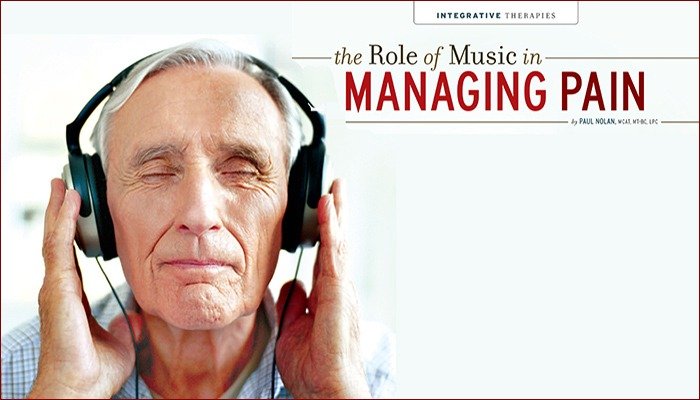Managing Medication: The Practical Advice You Need to Know

If you deal with chronic pain, you probably deal with medication. You know it’s important to understand your prescription drugs and remember to take them. What you may not know is the best ways to organize medication, keep track of prescriptions and dispose of unneeded pills.
Here are frequently asked questions about managing medication:
How can I fit taking medication into my schedule?
The key to successful medication management is to find a system that works for you. One obvious way is to take it at the same times each day and incorporate into your daily routine. Many people take medication at breakfast to make sure they’re covered for the day. You can use an app (see below) or a timer on your watch or phone to remind you when to take a dose.
How should I organize my medication?
Pill organizers: You’re probably familiar with the different types of pill organizers that can be purchased in drug stores or online. When selecting a pill organizer, think about the size, number of days and number of compartments that will work best. If you’re unsure, ask your pharmacist for help. And customize it for your specific needs by adding your own labels.
Automatic pill dispenser: Another option is an automatic dispenser that can be purchased online. The advantage is pills are automatically dispensed up to four times a day and there is a blinking light or alarm to remind you to take your pills. You will need to fill it with your medication or have a relative or pharmacist fill it for you. Once medicine is in you cannot take it out, which could be a problem if you’re away from home.
Colored medicine bottles: If you like to keep your medication in bottles, you can color code your bottles as to when you need to take pills. So put all medications you take at breakfast time in a bottle with a blue mark or label, use green for lunch time, red for dinner time and yellow for bedtime. Check with your pharmacist before you combine pills into one bottle in case they should not be mixed.
Where should I store medication?
Most experts agree that the bathroom is not a good place to store medications due to moisture, varying temperatures and light. Choose a place in your home that is cool, dry and away from bright windows. It could be in a kitchen cabinet (away from the stove or sink) or a drawer in your bedroom.
Don’t choose the refrigerator, unless the pharmacist, label or package insert advises refrigeration after opening. Your fridge is a cool place, but it’s also moist and easy access for curious children.
Read the labels to be sure of the best place to store. And if you have children in your house, it’s a good idea to keep medication and all vitamins (especially those containing iron) out of reach in a locked cabinet.
How long should I keep my medicine?
One obvious answer is to check the expiration date. If the date has passed, throw the medication out. If your doctor has told you to stop taking a particular medicine, dispose of it immediately. And throw away medicines that have unreadable labels.
How should I get rid of it?
Almost all medicines can be safely disposed of by using medicine take-back programs or using Drug Enforcement Agency (DEA)-authorized collectors. When these options are not available, you can also dispose of unneeded medicine in your household trash.
To throw out unused or expired medicines, mix the medicine (do not crush tablets or capsules) with an unpalatable substance such as dirt, kitty litter, or used coffee grounds. Then place the mixture in a container such as a zip-top or sealable plastic bag, and throw the container in your trash. Before throwing out your empty pill bottle or other empty medicine packaging remember to scratch out all personal information on the prescription label to make it unreadable.
A few prescription medicines that contain controlled substances and are especially harmful if taken accidentally by someone other than the patient should be disposed by flushing down a sink or toilet.
How can I keep track of my prescriptions?
If you have several prescriptions, it’s important to keep a list of all medications including name of the medicine, description of what it does, the dose, times of day you take it and possible side effects. Use an app or put all info in one document.
Apps to try:
Medisafe Pill Reminder, Medication and Prescription Organizer is a free app for iPhones. It reminds you to take your medication and helps you stay organized.
CareZone is a free app for androids. It provides a way for you and your family to manage medications and doctor’s instructions.
Ready-made forms to use:
The FDA offers a downloadable PDF called My Medicine Record. Once you have filled out the form, keep a printed copy with you at all times. Share the record with your doctors, pharmacists, or other health professionals at all visits.
AARP offers My Personal Medication Record which is available in both English and Spanish and allows you to list all the medicines you take, including over-the-counter drugs and herbal supplements. Provide your doctor, pharmacist, and a friend or family member with an updated copy of your medication record. Carry your record with you and keep a copy at home.
[Related – Helpful Advice for Organizing Your Medical Records]
How can I manage my medications when I travel?
Before you travel, ask your doctor or pharmacist how to adjust your medicine schedule to account for changes in time zones, routine, and diet. Keep a list of all the medications as well as your doctors and pharmacists phone numbers with you. (The easiest way is to store all in your cell phone.)
When flying, carry on your medicines and take enough medication with you in case you need to stay longer. Bring medications with you in their original containers so that airport security knows they are prescription pills from your doctor.
If you’re driving, don’t store medication in the glove compartment, where it could be damaged from the heat or cold. And always keep medicines out of direct sunlight.
What are some tips for taking medicines properly?
- Read and save any written information that comes with the medicine.
- Take the medicine according to the schedule on the label.
- If swallowing tablets is difficult, ask your pharmacist whether there is a liquid form of the medicine or whether you could crush your tablets. Do not break, crush or chew tablets without asking a health professional first.
- Get into the habit of checking the expiration dates on your medicine bottles, and throw away medicine that has expired.
What are some ways to avoid side effects?
- Always inform your doctor or pharmacist about all medicines you are already taking, including herbal products and over-the-counter medications.
- Tell your doctor, nurse, or pharmacist about past problems you have had with medicines, such as rashes, indigestion, dizziness, or loss of appetite.
- Read the prescription label on the container carefully and follow its directions.
- If you experience side effects, write them down so you can report them to your doctor accurately.
- Call your doctor right away if you have any problems with your medicines or if you are worried that the medicine might be doing more harm than good. He or she may be able to change your medicine to another one that will work just as well.
PainPathways Magazine
PainPathways is the first, only and ultimate pain magazine. First published in spring 2008, PainPathways is the culmination of the vision of Richard L. Rauck, MD, to provide a shared resource for people living with and caring for others in pain. This quarterly resource not only provides in-depth information on current treatments, therapies and research studies but also connects people who live with pain, both personally and professionally.
View All By PainPathways






